| Reviews & Columns |
|
Reviews DVD TV on DVD Blu-ray 4K UHD International DVDs In Theaters Reviews by Studio Video Games Features Collector Series DVDs Easter Egg Database Interviews DVD Talk Radio Feature Articles Columns Anime Talk DVD Savant Horror DVDs The M.O.D. Squad Art House HD Talk Silent DVD
|
DVD Talk Forum |
|
|
| Resources |
|
DVD Price Search Customer Service #'s RCE Info Links |
|
Columns
|
|
|
Bill Moyers: The Wisdom of Faith With Huston Smith
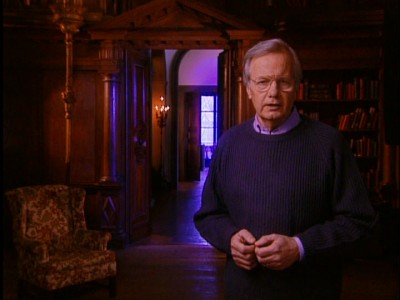
Is it possible to take the very checkered past of the world's major religions--Hinduism, Buddhism, Taoism, Judaism, Christianity, and Islam--and look beyond the constant striving within and among each other--the centuries of oppression, ignorance, and violence that has not left one of them untroubled--to not only glean the wisdom at the core of each one, but to actually find a patch of common ground where they all meet and overlap, a commonality robust enough to sustain a legitimate, pluralistic spiritual practice? Can one be equally and simultaneously devoted to the validity of all the major faiths? The decades-spanning work of renowned professor of comparative religion and author of the widely-read volume The World's Religions, Huston Smith, is predicated upon a (qualified) "yes" answer to that question. In the 1996 PBS series The Wisdom of Faith with Huston Smith, the U.S. media's longstanding stalwart of intellectual curiosity, Bill Moyers, sits down with Smith and gets him to share the experiences and impressions of his very long, focused, and immersive journey through the often seemingly incompatible "wisdom traditions" (Smith's term) that define the lives and cultures of billions of people worldwide.
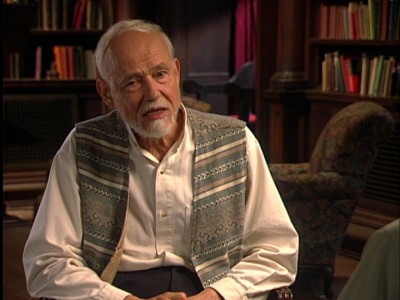
The series is divided into five parts: "Hinduism and Buddhism," "Confucianism," "Judaism and Christianity," "Islam," and "A Personal Philosophy." In each one, Moyers acts as interlocutor and prompter for Smith's presentation of the various faiths' core beliefs and practices, as well as his own personal experiences and interpretations of their meanings. Smith relates, for example, his time as a neophyte in a Buddhist monastery, recalling in fairly intimate detail his real, humbling struggle as a Western intellectual to engage meaningfully with even the most basic Zen koans. Elsewhere, he uses his own daughter's marriage to an Orthodox Jew-- which was his own jumping-off point for a deeper study of that religion--as a segue into the segment devoted to Judaism. Interspersed throughout is footage of various followers practicing their faiths (Buddhists creating mandalas, Jews celebrating Shabbat Shalom, etc.) as well as Smith's incorporation of practices such as yoga and traditional Muslim prayer into his daily life. The interviews take the form of a convivial back-and-forth between two well-educated, well-spoken friends (at least, I would infer that Moyers and Smith are acquainted with each other outside of the professional setting), and they are, at their best, like listening in on a particularly rich, engaged, intelligent, and lively conversation.
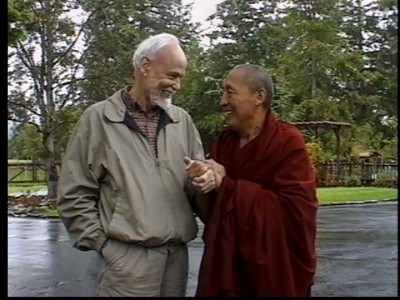
There is little to say about the formal or aesthetic properties of the program, which takes the self-evident, straightforward path of over-the-shoulder, medium-close shot-countershot from Moyers to Smith and back again, with their exchange frequently continuing as audio over footage intended to illustrate or deepen what they are discussing at the moment. Something like The Wisdom of Faith lives or dies more by the personalities involved, the quality of their ideas and the manner in which they're articulated; on that front, the program is a modest but solid success. Smith, who is shown infrequently in archival footage from the 1950s as a baby-faced young man (already appearing on television to demonstrate yoga and other unfamiliar religious concepts to Americans), is now a quite elderly gentleman with a hearing aid and somewhat slowed speech. But his passion and devotion--not to mention his very substantive knowledge and relaxed humility--are evident in every point, anecdote, and digression he relays, usually with a joyfully smiling expression. For his part, Moyers is intent on making the series a conduit from Smith's expansive mind to us, but he is never afraid to ask the expert to clarify or re-explain himself as necessary. In the final episode, in which Smith makes a claim for faith vs. atheism and the feasibility of a pluralistic implementation of multiple faiths at the same time, Moyers asks him some rather tough, even critical questions (in a respectful way, of course), to which Smith provides his best, most honest, and most well-considered answers, leaving us to decide how convincing they are, to Moyers or to us.
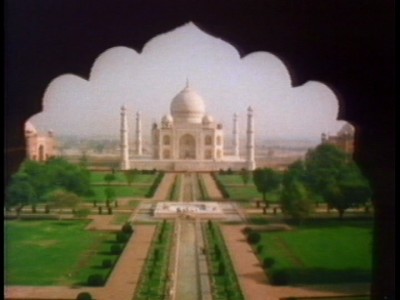
Moyers and Smith's exchange reaches no definite conclusions, and at times the subjectivity of Smith's rendition of things--a subjectivity he serenely admits to--can make for draggy patches, at least for those of us who are skeptics or non-believers. Smith does go out of his way to acknowledge the errors and atrocities that litter the history of world religion, but he can still come across at times as a tad naive, particularly when describing moments of spiritual ecstasy. Still, with Moyers's grounded presence and structured line of questioning, we most often get Smith digging deep and coming up with real insights and food for thought as he and Moyers take religion, which is supposed to be an inherently hostile, unfit-for-the-dinner-table topic, and manage to have a conversation about it that is so genuinely interested and free of prejudice or condemnation (rare enough in life, let alone on TV) that those qualities themselves become The Wisdom of Faith's most refreshing, involving attribute.
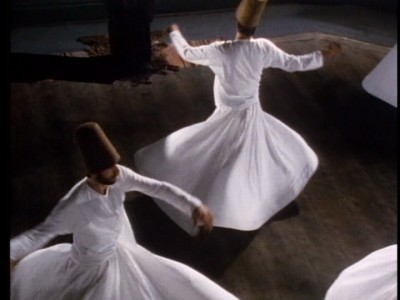
THE DVD:
The series was shot on videotape (with a mix of video, 16 mm, and 35 mm for the archival footage) in the later 1990s, and that mid-level but quite crisp and clear visual quality, perfectly sufficient and apt in this context, has remained unblemished on its transfer to DVD.
Sound:The Wisdom of Faith's sound is mainly just the voices of Moyers and Smith as recorded in their interviews, along with a piece of religious chanting or music here and there, and the discs' Dolby Digital 2.0 stereo soundtrack carries the series's audio with a fullness and clarity that likely excels what it would have sounded like when originally transmitted over the airwaves and cable boxes.
Extras:--Onscreen-text/slideshow bonus features include, on the first disc, biographies of Moyers and Smith, and on the second, a very basic visual/text rundown of the primary art and symbolism (the cross for Christianity, the Star of David for Judaism, etc.) of each of the major "wisdom traditions" discussed in the series.
--As usual for their re-releases of educational series and specials, Athena has included a deceptively compact little booklet offering a remarkably concise summation of the most basic comparisons and contrasts between the major world religions, including those related to such theological concerns as deities and commandments as well as those regarding more hands-on affairs like the different faiths' religious architecture and ideas of charity.
FINAL THOUGHTS:For those seeking some kind of spiritual enlightenment or those who just want to brush up on the beliefs and practices that have influenced world history so extensively that they affect us all, The Wisdom of Faith with Bill Moyers, despite its occasional slip into an esoteric subjectivity that seems to be more for believers only, makes an excellent primer, not just on the "facts" of what adherents of this or that religion do or do not do, believe or do not believe, but on the underlying meanings and purposes that, for many, make religion immediately relevant (and, according to Smith, render the core truths of the major belief systems universally applicable). Smith offers an insider's look at something that most people's understanding, whether your faith differs from the one he's discussing or you are of no faith at all, remains firmly outside of, and following along as he and Moyers delve into his first-hand, committed life's work on religion is an enjoyable process that is bound to leave the viewer with more than one useful or productively intriguing idea to take away with them. Recommended.
|
| Popular Reviews |
| Sponsored Links |
|
|
| Sponsored Links |
|
|
| Release List | Reviews | Shop | Newsletter | Forum | DVD Giveaways | Blu-Ray | Advertise |
|
Copyright 2024 DVDTalk.com All Rights Reserved. Legal Info, Privacy Policy, Terms of Use,
Manage Preferences,
Your Privacy Choices | |||||||












